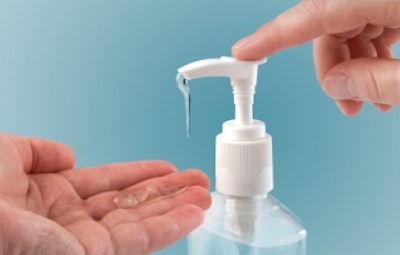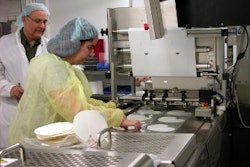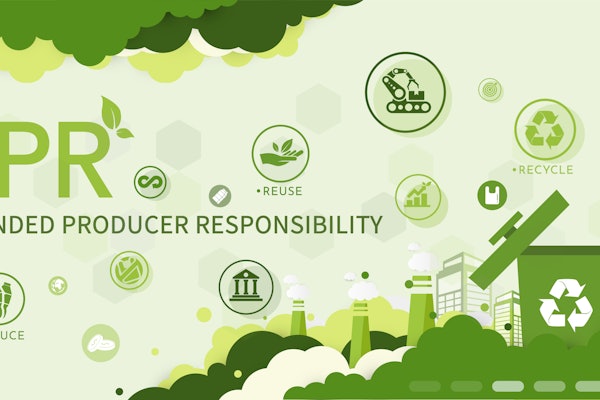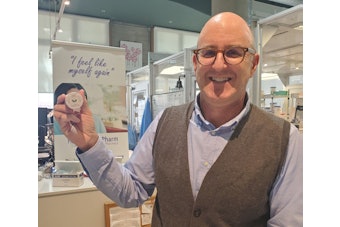
The Centers for Disease Control and Prevention's Web site says, "Keeping hands clean through improved hand hygiene is one of the most important steps we can take to avoid getting sick and spreading germs to others. Many diseases and conditions are spread by not washing hands with soap and clean, running water."
We've heard about the significance of washing our hands at home, and in particular how important the task is for healthcare workers and food handlers, but a new study by SCA dishes out the dirt on office hand-washing behavior.
SCA, a global hygiene and paper company that develops and produces personal care products, including hand towels and soap found in many office and public restrooms, used KRC Research to conduct a telephone survey on the topic. It involved 500 full- or part-time American office workers, ages 18 and older, and was done Sept. 30 to Oct. 2, 2011. The study results were revealed about the same time as Global Handwashing Day, Oct. 15.
According to the survey, 68% of office workers said they had seen their co-workers not wash their hands after using the restroom. And of those that said they do wash their hands, about one in five noted that they simply give their hands a quick rinse, regardless of what was done in the bathroom. Office workers who admitted to not washing their hands cited a variety of reasons for committing the dirty deed, including: my hands aren't really dirty (69%); I don't have time (8%); there was no soap or towels (4%); and the disturbing, nobody was watching (3%).
The majority of poor bathroom hygiene habits took place in the men's room, where 75% of male office workers said they had witnessed a colleague not wash their hands, while only 61% of female office workers reported seeing such a thing in the ladies room.
Younger employees seemed more likely than boomers to have good bathroom hygiene habits, or at least they are more likely to notice bad behavior. In fact, of office workers who said they wash their hands regularly when using the bathroom, 76% of those under the age of 45 reported seeing colleagues who did not wash their hands. Only 60% of office workers over 45 said they have noticed such behavior.
On a regional level, the SCA survey found that office workers who live in the Midwest are more likely than those living in the South to have noticed a co-worker not washing their hands (74% vs 64%).
"Office workers come in contact with a lot of surfaces during the day and even though hands may not appear dirty, the potential to spread germs is high," said SCA VP Amy Bellcourt. "Following good handwashing practices, like washing and completely drying your hands after using the restroom, can help office workers avoid catching anything from the common cold to dangerous viruses."
Even though office workers reported seeing their co-workers not wash their hands, 38% said they had not confronted a co-worker simply because they didn't know how to bring it up. At the same time, about a third of office workers who have seen co-workers not wash their hands have confronted them because they say "it's disgusting," according to the survey. -Jim Butschli, Healthcare Packaging
We've heard about the significance of washing our hands at home, and in particular how important the task is for healthcare workers and food handlers, but a new study by SCA dishes out the dirt on office hand-washing behavior.
SCA, a global hygiene and paper company that develops and produces personal care products, including hand towels and soap found in many office and public restrooms, used KRC Research to conduct a telephone survey on the topic. It involved 500 full- or part-time American office workers, ages 18 and older, and was done Sept. 30 to Oct. 2, 2011. The study results were revealed about the same time as Global Handwashing Day, Oct. 15.
According to the survey, 68% of office workers said they had seen their co-workers not wash their hands after using the restroom. And of those that said they do wash their hands, about one in five noted that they simply give their hands a quick rinse, regardless of what was done in the bathroom. Office workers who admitted to not washing their hands cited a variety of reasons for committing the dirty deed, including: my hands aren't really dirty (69%); I don't have time (8%); there was no soap or towels (4%); and the disturbing, nobody was watching (3%).
The majority of poor bathroom hygiene habits took place in the men's room, where 75% of male office workers said they had witnessed a colleague not wash their hands, while only 61% of female office workers reported seeing such a thing in the ladies room.
Younger employees seemed more likely than boomers to have good bathroom hygiene habits, or at least they are more likely to notice bad behavior. In fact, of office workers who said they wash their hands regularly when using the bathroom, 76% of those under the age of 45 reported seeing colleagues who did not wash their hands. Only 60% of office workers over 45 said they have noticed such behavior.
On a regional level, the SCA survey found that office workers who live in the Midwest are more likely than those living in the South to have noticed a co-worker not washing their hands (74% vs 64%).
"Office workers come in contact with a lot of surfaces during the day and even though hands may not appear dirty, the potential to spread germs is high," said SCA VP Amy Bellcourt. "Following good handwashing practices, like washing and completely drying your hands after using the restroom, can help office workers avoid catching anything from the common cold to dangerous viruses."
Even though office workers reported seeing their co-workers not wash their hands, 38% said they had not confronted a co-worker simply because they didn't know how to bring it up. At the same time, about a third of office workers who have seen co-workers not wash their hands have confronted them because they say "it's disgusting," according to the survey. -Jim Butschli, Healthcare Packaging





















